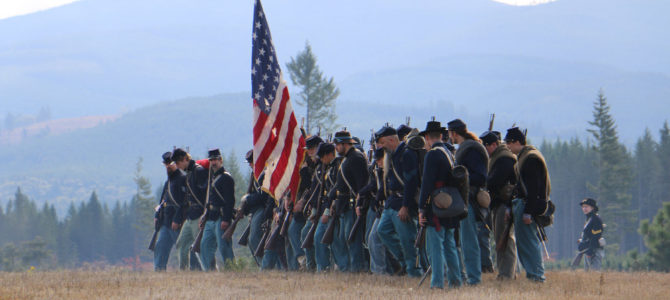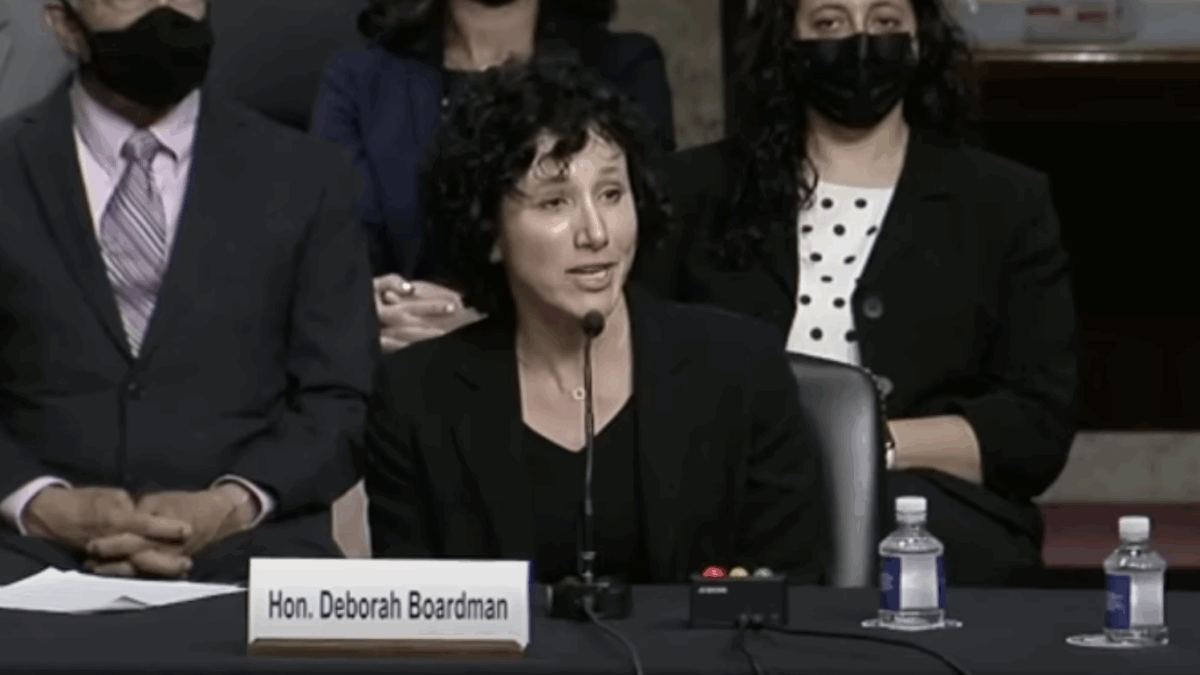
Roughly two years ago, when the uproar about Confederate Civil War monuments was at its peak, the Chicago Tribune reported on a monument to Confederate soldiers far north of the Mason-Dixon Line, in Chicago itself. The monument was at the site of a mass grave of soldiers who died as prisoners of war (POWs) at Camp Douglas, at which more Confederate prisoners died than any other, in overcrowded and disease-filled conditions.
In April 2018, a group calling itself “Smash White Supremacy Chicago” held a protest to call for the monument to be taken down, as a counter-protest to an event by the “Sons of Confederate Veterans.”
Not far away, in Madison, Wisconsin, the city council voted in 2018 to remove a monument listing the names of Confederate POWs buried at a local cemetery, overruling the Landmarks Commission which deemed the structure to be a grave marker (since those names are no longer visible on individual markers).
Now there’s a new front in the local battle, as the Chicago Tribune’s Lake County local news section reports, “Lake County Forest Preserves chair calls for end to Civil War Days; resident says, ‘This has nothing we want, nor should celebrate, nor re-enact’.”
Civil War Days is a 27-year tradition hosted at the Lakewood Forest Preserve, the largest forest preserve in Lake County—the county north of Chicago, bordering Wisconsin to the north and Lake Michigan to the east. It was formerly the home of the Lake County Discovery Museum but when the museum relocated in 2017, the re-enactment event remained at Lakewood. For a price of $10, visitors could enjoy a variety of activities and learn about not just military history but daily life of the era.
The boom of cannons, the crack of rifles, the galloping of horse hooves welcomes you at the annual Civil War Days encampment. Wander the camps to see soldiers, civilians and tradesmen at work. Watch as union and confederate forces collide in battle. A large-scale battle can be viewed on both Saturday and Sunday. Visit the 1863 Summer Fair, meet President Lincoln and shop Civil War–era vendors. Kids enjoy period crafts, games and a scavenger hunt.
Last week, however, Angelo Kyle, the Forest Preserve Board president, unilaterally pulled the plug on the re-enactment. There is no event planned as a replacement, just an empty spot in the calendar. His stated reason:
Kyle said he had been to the event before with former board member and fellow African American Audrey Nixon and, ‘Some of the things I experienced I cannot talk about here,’ while referencing the sight of Confederate battle flags.
‘There were a considerable number of Confederate flags and a number of other things I took into consideration,’ Kyle said.
In 2015, the district staged Civil War Days shortly after South Carolina removed the battle flag from its state Capitol. At the time, forest preserves officials said Confederate flags were not being displayed inappropriately at the Lake County event and were used in a historical context.
Kyle said on Tuesday that history is written by the victors, and he believes there is only one side to the story being told at re-enactment events.
‘Our ancestors told us what really happened. Did you know that black soldiers were put on the front line in the North and Southern front lines so they would be killed first?’ he asked fellow board members.
This isn’t just a story of ignorant social justice warriors who fail to understand history (no, black soldiers were not put on the front lines of the Union and Confederate armies to take the most casualties but were largely kept behind the lines as manual labor). It appears to be much more a story of garden-variety politics.
Lake County is a very diverse county. Along the lake, towards the south, are such wealthy Chicago suburbs as Lake Forest and Highland Park. Further north are (post-)industrial areas such as Waukegan and North Chicago, both heavily minority in their population. To the west remain some rural areas, as well as towns that exploded in size in the pre-recession housing boom, with a mix of upper-middle class, middle-class, and working-class areas. Kyle, who is African-American and whose resume indicates a strong identification with the African-American community, represents one of these minority districts.
Kyle’s role as Forest Preserve Board president is not an office he sought out due to a deep and abiding desire to maintain natural areas in Lake County. All Lake County Commissioners are simultaneously Forest Preserve Board members, and they elect a board president and vice-president from among themselves.
Kyle had previously been on the board from 1990 to 2012, then left and rejoined in 2018. The press release announcing his selection mentions a prior tenure as vice president from 1992 to 1994 and from 2006 to 2008, and cites as a particular accomplishment:
the 2011 expansion of the Greenbelt Cultural Center, a North Chicago venue that offers indoor and outdoor spaces for community events and educational programs, and corporate and private rentals, including an amphitheater and multi-purpose room with panoramic views of the natural setting…
This suggests a greater interest in serving his constituency than in preserving natural spaces. He also, in the original Tribune article, said he wants to shift the agency’s focus to climate change.
His 2018 election and selection also took place in the context of a “blue wave” in Lake County, in which the board saw a Democratic majority for the first time in its history, with 12 commissioners to the GOP’s nine, so this majority was able to select from its numbers the chair and vice president of both the board itself and the Forest Preserve Board.
That brings us back to Tuesday’s meeting, where the board members appeared blindsided:
Many board members were stunned, with former president of the forest preserves Ann Maine questioning Kyle’s authority to make the decision.
‘I’m deeply disappointed in the process and lack of transparency,’ she said. ‘I’m deeply troubled by this and concerned about the precedent it sets. Can events and programs be cancelled without input?’
While Kyle said he followed proper procedure, Executive Director Ty Kovach said in answer to a question by a commissioner that it was not clear in policy if the president could cancel an event or create one on his own.
In the end, Kyle relented only insofar as he accepted the 2019 event proceeding as the final one.
This is a much more fundamental culture clash with politicians being wholly unprepared for a new brand of politics in which even traditional family events become politicized, and one more piece of American heritage disappears. However startled board members were, and despite their skepticism that Kyle had the power to singlehandedly cancel the event, none of them were willing to put up a fight, lest they be tarred as racists.









